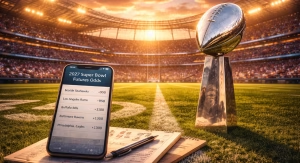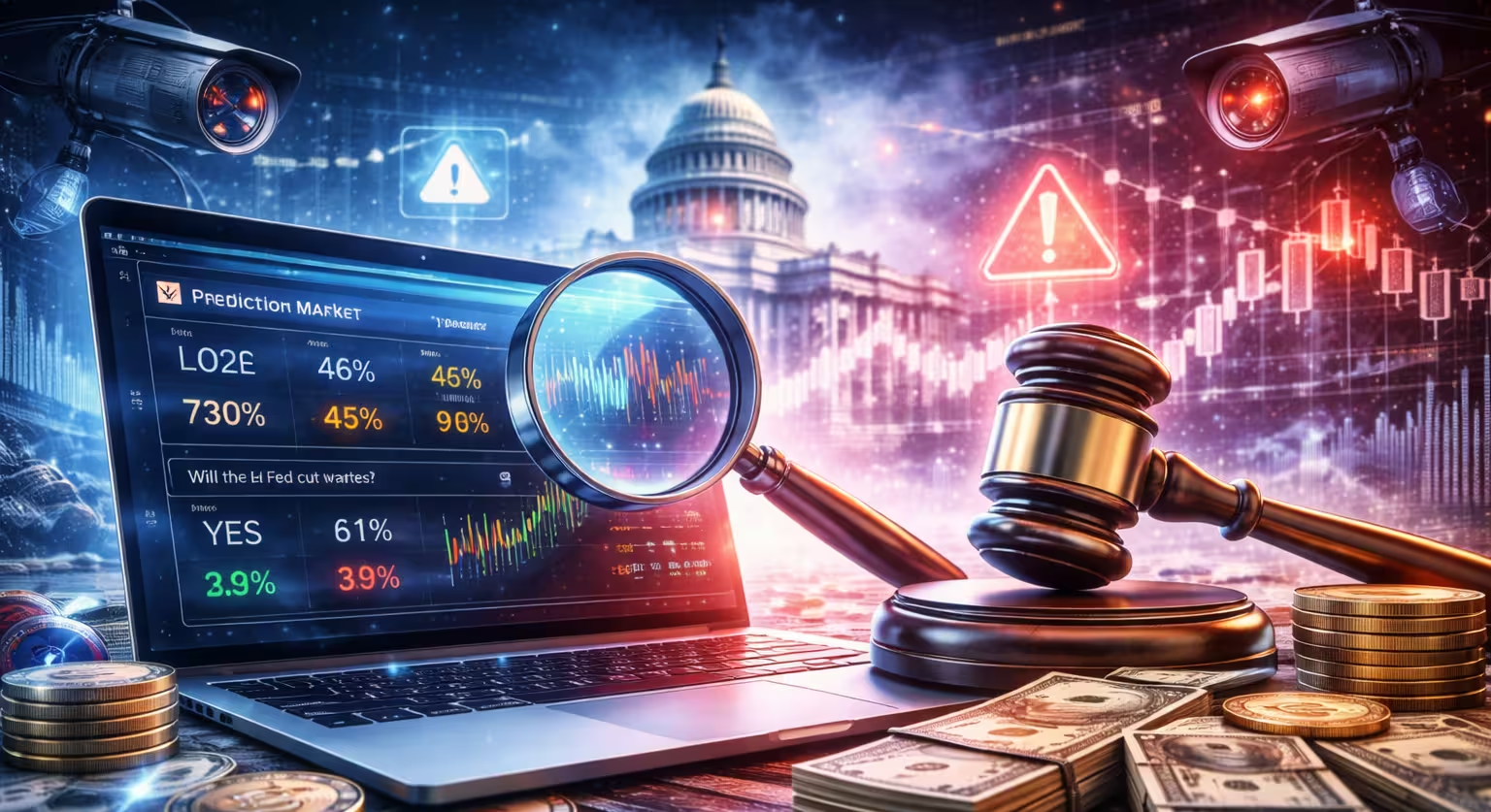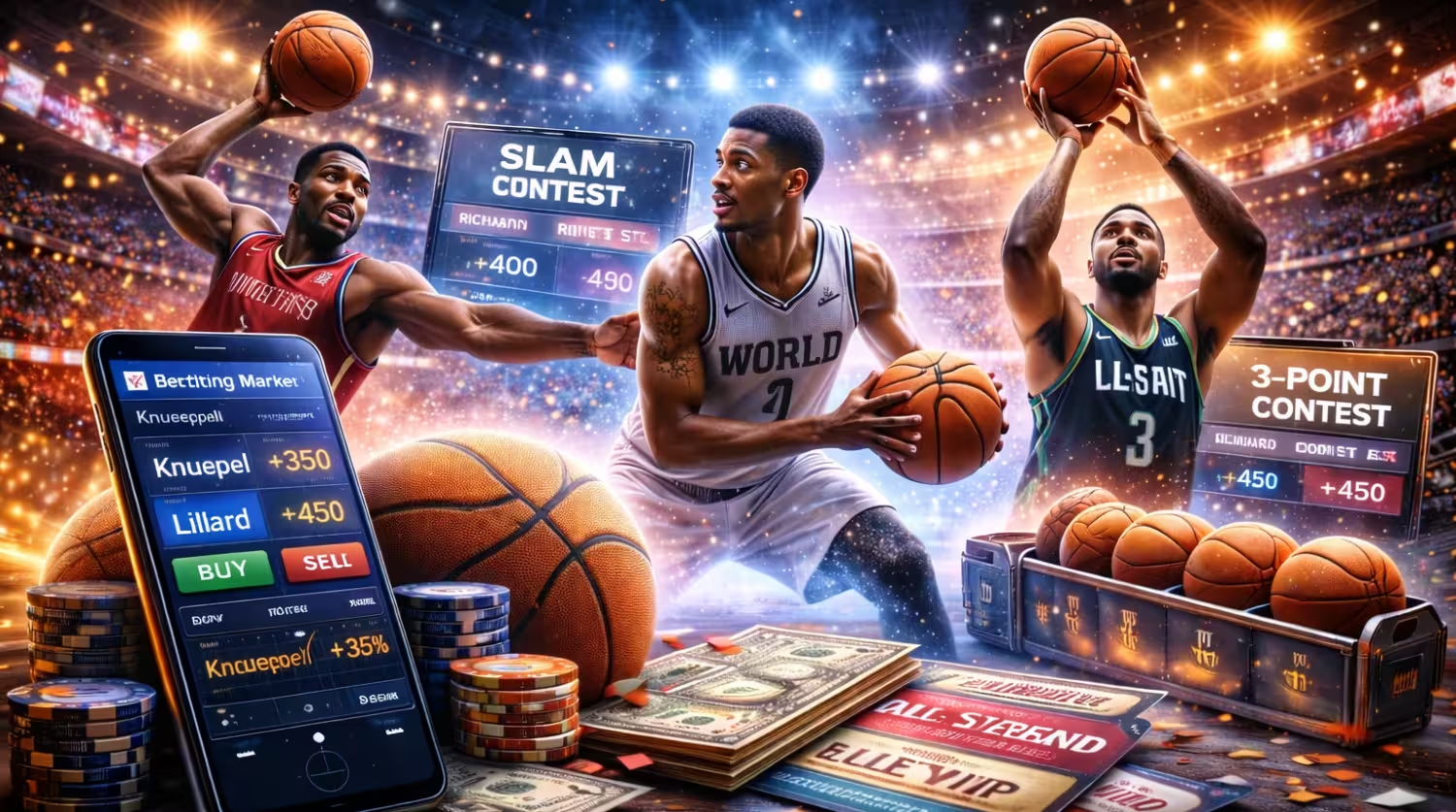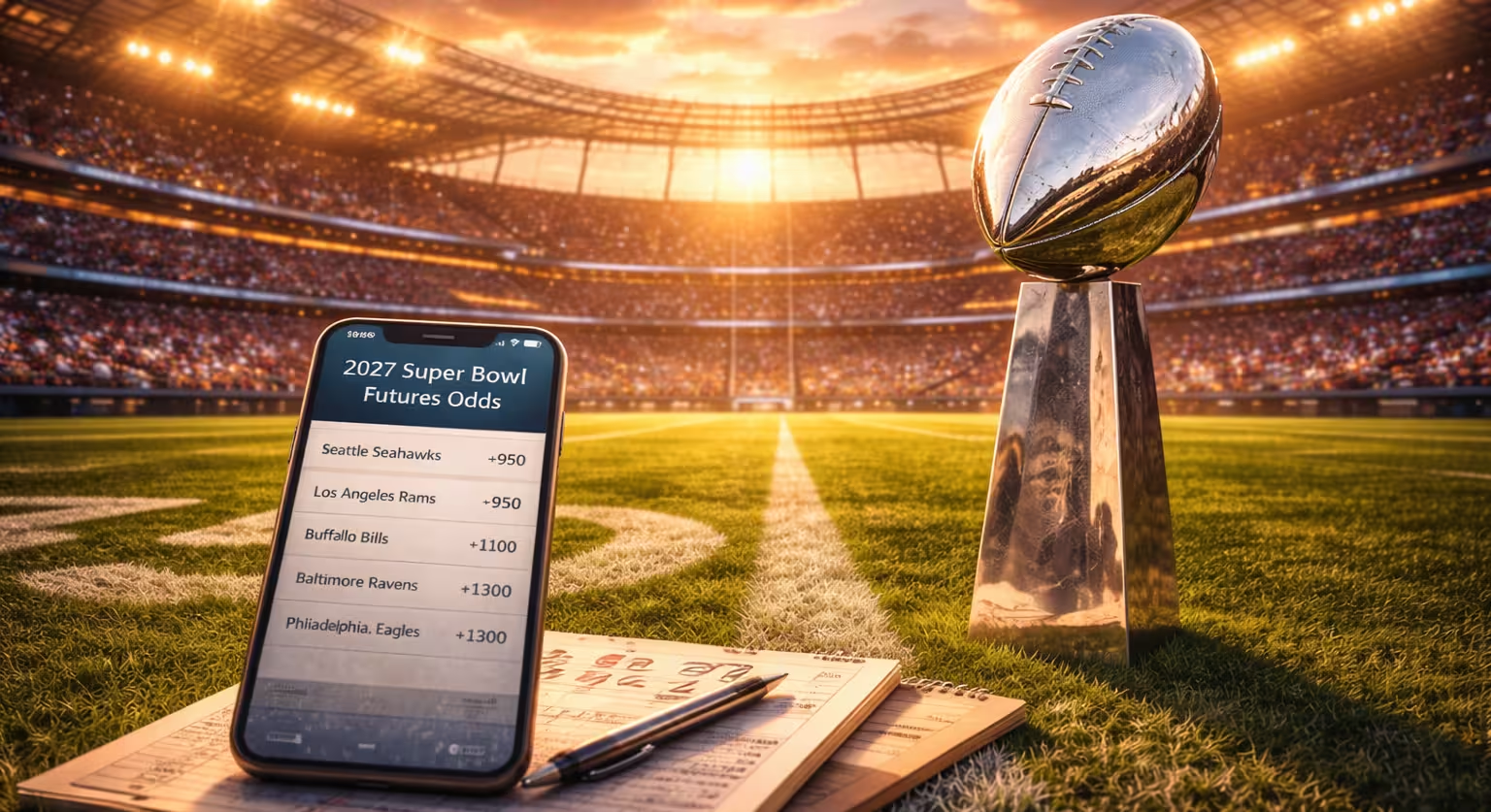Prediction Markets vs. Sportsbooks: Who Wins When Everyone Bets on Everything?
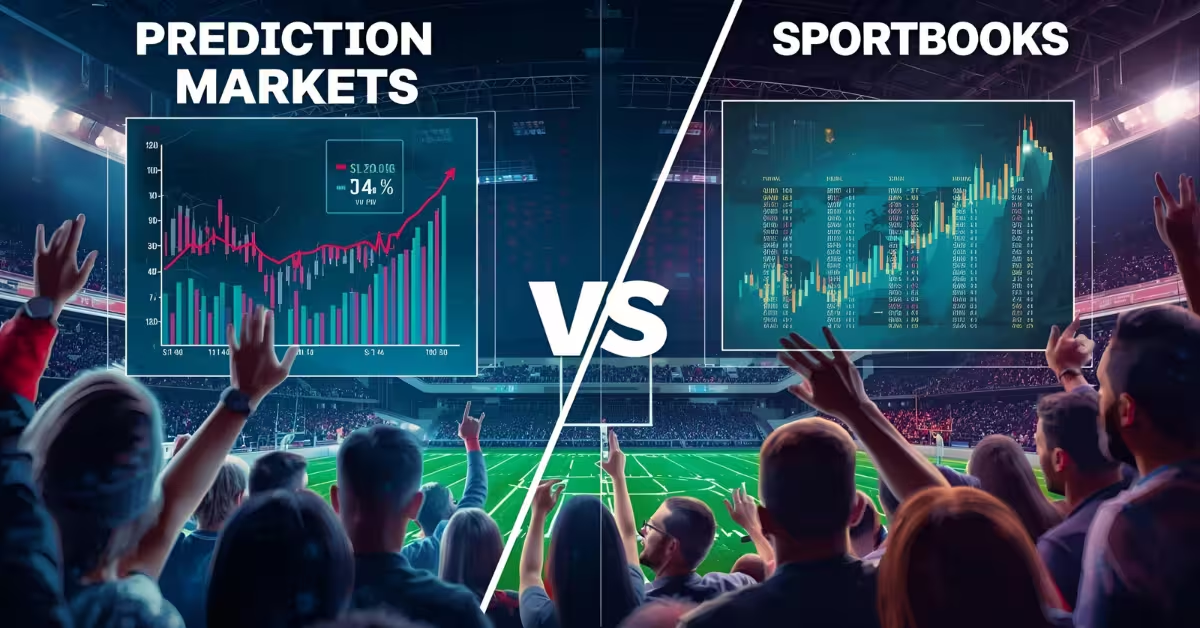
Betting isn’t what it used to be. It’s no longer just about Sunday spreads or who covers the over. Today, you can wager on almost anything — from election outcomes and crypto prices to how long it’ll take before your favorite celebrity drops their next album.
That shift isn’t random. It’s the result of two powerful forces colliding: the rise of prediction markets and the evolution of sportsbooks into data-driven, AI-powered machines. One lets the crowd decide what’s likely to happen. The other uses expert algorithms and sharp oddsmakers to keep the house on top.
The result? A high-stakes face-off between democracy and dominance — where everyone’s opinion can move the market, and every bet becomes a data point in the world’s biggest guessing game.
But here’s the real question: When everyone bets on everything, who actually wins? The traders who outsmart the crowd? The sportsbooks with their razor-thin edges? Or maybe the everyday bettor who knows how to play both systems against each other?
Let’s pull back the curtain and find out which side truly holds the advantage — and how this new frontier of betting might redefine the entire gambling industry.
What Are Prediction Markets (and How They Work)
Prediction markets are where betting meets economics. Instead of relying on a bookmaker to set the odds, these platforms let the crowd decide what’s likely to happen. Every participant essentially becomes a mini-analyst, buying and selling “shares” in an outcome — and the current price of those shares reflects the market’s collective belief about the probability of that event.
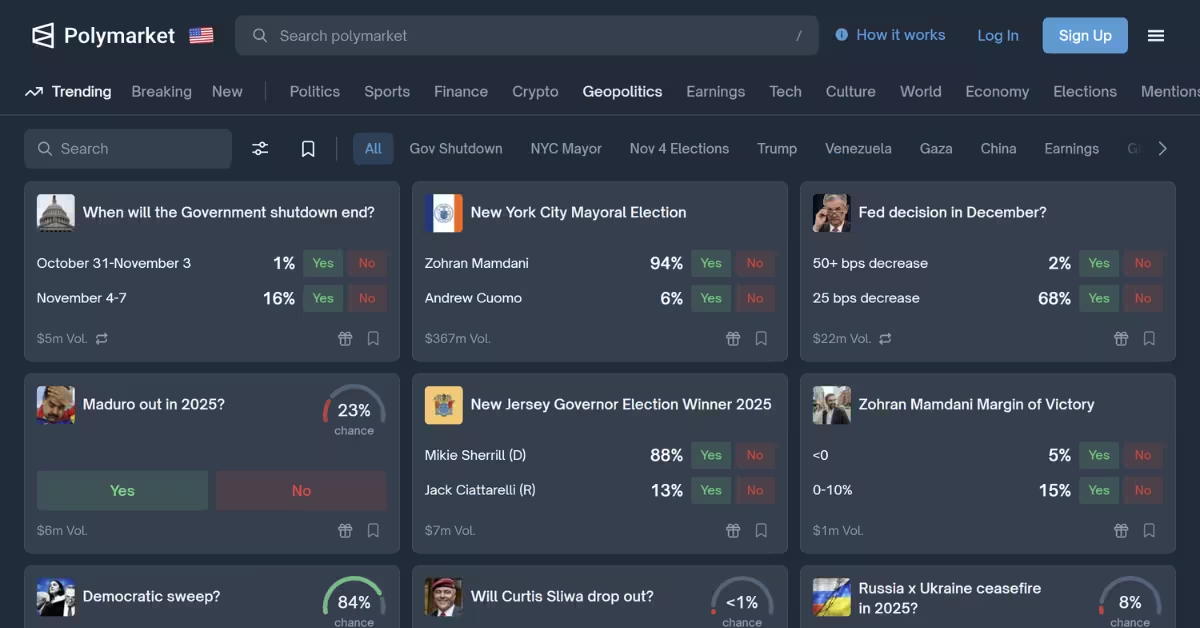
Here’s how it plays out: if a contract tied to “Team A winning the championship” is trading at $0.65, the market is saying there’s a 65% chance Team A pulls it off. If new info drops — a major injury, a coaching change, or a viral tweet — those prices shift in real time as traders adjust.
Popular Prediction Market Platforms
- Polymarket – A blockchain-based platform offering markets on politics, pop culture, and global events.
- Kalshi – A U.S.-regulated exchange focusing on economics, weather, and policy outcomes.
- PredictIt – A political prediction market popular for tracking elections.
Advantages of Prediction Markets
- Collective intelligence: Thousands of small opinions merge into surprisingly accurate forecasts.
- Real-time odds movement: Markets react instantly to new information.
- Transparency: Prices are visible to everyone, not hidden behind algorithms.
- Creative markets: Bet on events that traditional sportsbooks wouldn’t touch.
Drawbacks to Watch For
- Limited liquidity: Smaller markets can see wild price swings.
- Regulatory gray zones: Not all are approved or monitored by U.S. regulators.
- Potential for manipulation: Deep-pocketed traders can distort market sentiment.
In essence, prediction markets are like the stock market for outcomes. Instead of trading companies, you’re trading beliefs — and your profit depends on whether the crowd’s collective wisdom turns out to be right or wrong.
Sportsbooks: The Traditional Powerhouse
If prediction markets are the Wild West of betting, sportsbooks are the established kingdoms. These are the heavyweights — names like FanDuel, DraftKings, BetMGM, Caesars, and ESPN BET — operating under tight regulation, armed with massive data models, and backed by billions in handle every week.
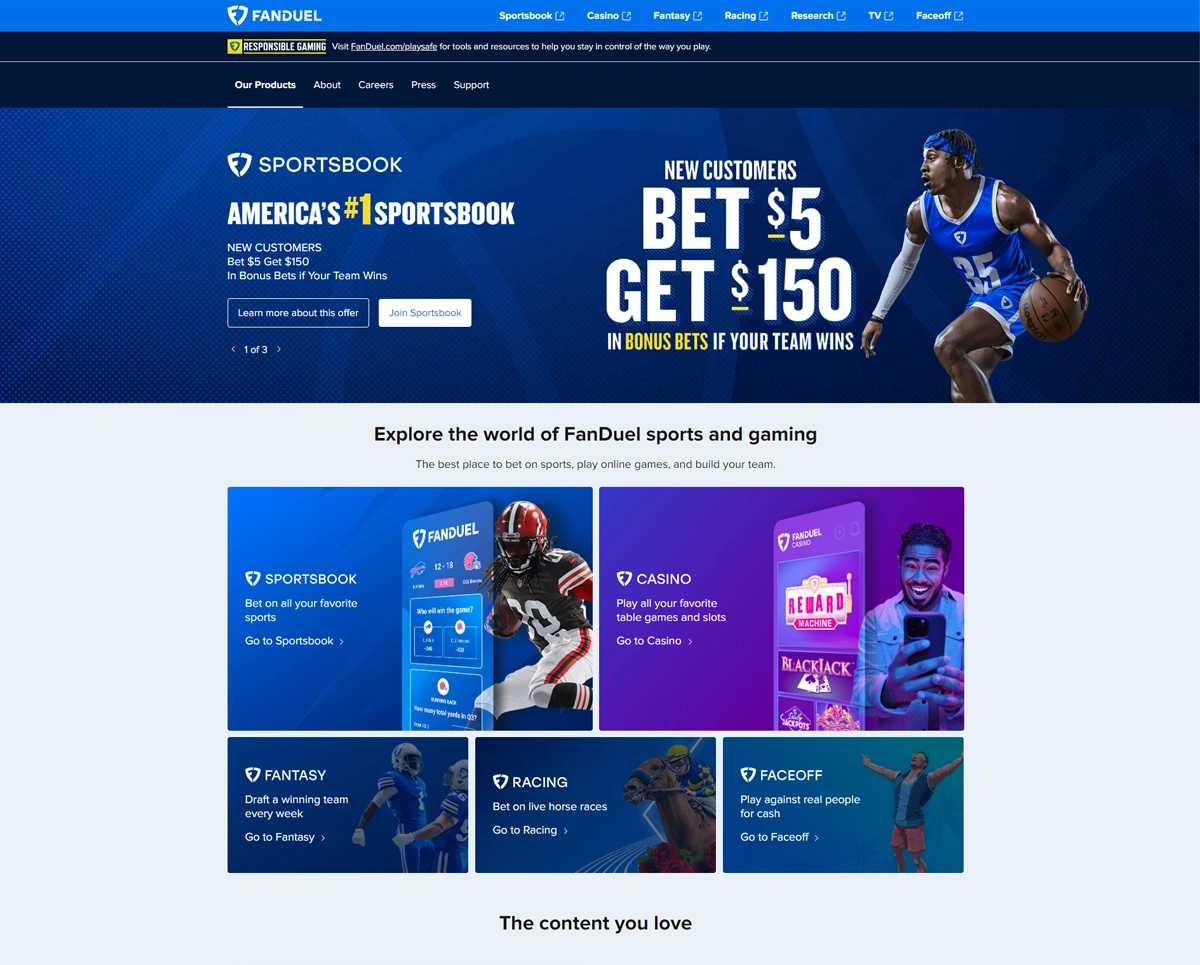
Sports betting sites don’t just let people wager; they engineer the odds. Oddsmakers build their lines using a mix of analytics, AI, and good old-fashioned intuition. They analyze player stats, weather, matchups, injuries, and betting trends — all to produce odds that attract bets on both sides. Once the bets come in, they adjust the line to balance their exposure and secure the margin known as the vig (the house’s built-in profit).
In short, sportsbooks don’t care who wins — they care that they do.
How Sportsbooks Build the Line
- Data Modeling: Algorithms project likely outcomes using advanced analytics.
- Market Testing: Early odds are released to “sharps” who help reveal line weaknesses.
- Public Action: Odds are fine-tuned based on where casual bettors are putting their money.
- Balancing the Book: Lines move not to predict the outcome, but to equalize risk.
Advantages of Sportsbooks
- High liquidity: Big events can handle millions in wagers without major price swings.
- Legal and regulated: Licensed operators must meet consumer protection standards.
- Reliable payouts: Winnings are guaranteed under legal oversight.
- Variety: From prop bets to live in-play markets, sportsbooks offer it all.
Disadvantages
- House edge: The built-in vig means you’re always paying a small tax on every wager.
- Limited flexibility: Markets are controlled by the operator — you can’t create your own events.
- Opaque pricing: You see the odds, but not the math or reasoning behind them.
Sportsbooks are built on consistency, trust, and scale. They dominate the mainstream because they feel familiar, safe, and polished. But that comfort comes with a tradeoff — less transparency, and odds that aren’t always a pure reflection of reality.
Efficiency Showdown: Crowd Wisdom vs. Bookmaker Expertise
At the heart of the debate between prediction markets and sportsbooks lies one crucial question: Who’s better at predicting the future — the crowd or the experts?
Prediction markets lean on the “wisdom of the crowd” theory — the idea that when thousands of independent participants each put money behind their beliefs, the resulting average prediction is often shockingly accurate. Every buy or sell order adds a small piece of new information, and collectively, that flow of data becomes a living, breathing forecast.
Sportsbooks, on the other hand, depend on expert modeling and data science. Teams of statisticians, traders, and oddsmakers crunch injury reports, historical stats, player form, and betting volume to build lines that reflect not only probability but also risk exposure and public sentiment.
To break it down simply:
Prediction Markets Excel When:
- There’s broad, distributed information. Many participants have unique insights that collectively improve accuracy.
- The event is non-traditional. For elections, policy, or pop culture, crowds may adapt faster than models.
- Transparency matters. Prices instantly show what people actually believe, not what a company wants them to think.
Sportsbooks Excel When:
- Data is structured and abundant. Sports outcomes have deep datasets that models digest better than human intuition.
- Speed and liquidity count. Lines must move fast during live play; sportsbooks have the tech to manage that.
- Profit management matters. Books adjust not just to predict outcomes, but to ensure they stay profitable regardless of result.
In theory, prediction markets should always converge toward true probability — but in practice, liquidity gaps, manipulation, and herd behavior can skew results. Meanwhile, sportsbooks use a tighter, more conservative system that sacrifices perfect accuracy for reliable revenue.
So which wins? It depends on your metric. Prediction markets might be truer, but sportsbooks are safer. The crowd chases information; the house manages it. And both, in their own way, reflect how money translates belief into numbers.
The Role of Regulation and Risk
When it comes to betting, regulation is the line between security and uncertainty. Sportsbooks and prediction markets operate on opposite sides of that line — and understanding how each is governed (or not governed) can make or break your trust as a bettor.
Sportsbooks: Safe, Structured, and Supervised
Sportsbooks are built on regulation. Every legal operator in the U.S. must follow state-level laws that dictate how bets are handled, payouts are processed, and consumer protection rules are enforced. Licensing requirements, audits, and responsible gambling measures are part of the deal.
That’s why placing a bet on FanDuel or DraftKings feels consistent. You know what’s allowed, what isn’t, and that you’ll actually get paid if you win. These sportsbooks operate under strict oversight designed to keep betting fair and transparent.
To see how the legal landscape works in your state, check out our detailed guide on U.S. Online Gambling Laws.
Prediction Markets: Innovation Meets Uncertainty
Prediction markets, on the other hand, live in a gray area. Some operate legally under specific exemptions, while others push boundaries and test regulatory patience. Because these platforms often deal with politics, economics, or social events instead of sports, the rules aren’t always clear.
That freedom fuels creativity — but it also invites risk. Without consistent oversight, it’s harder to guarantee fairness, fund security, or payout reliability.
Common Risks to Consider
Here’s what every bettor should think about before jumping in:
- Regulatory Risk: If the platform isn’t licensed or recognized by U.S. regulators, your money may not be protected.
- Liquidity Risk: Some prediction markets have thin trading volume, making it hard to exit a position or get fair prices.
- Manipulation Risk: A few large players can move the odds, distorting what looks like “crowd wisdom.”
- Operational Risk: In unregulated markets, there’s no guarantee of payout or refund if the platform freezes, folds, or faces legal action.
- Consumer Protection: Regulated sportsbooks must offer self-exclusion tools and responsible gambling features. Many prediction markets don’t.
The key difference is trust. Sportsbooks run within the guardrails of state law. Prediction markets thrive on openness but sometimes lack the structure that protects players. If you prefer security, stick with licensed sportsbooks. If you’re chasing new opportunities and understand the risks, prediction markets might offer value — just make sure you know which world you’re stepping into before placing your bet.
The Tech Factor: AI, Blockchain, and Real-Time Betting
Technology is rewriting the playbook for both sportsbooks and prediction markets — and in some cases, it’s starting to merge the two. What used to be a slow, manual process of line-setting and odds adjustment has turned into a lightning-fast, data-driven ecosystem powered by AI, automation, and blockchain transparency.
AI: The Brain Behind the Odds
Artificial intelligence now drives much of what happens behind the sportsbook curtain. Algorithms digest massive amounts of data — team stats, player performance, betting trends, even weather and social sentiment — and then adjust lines in real time. It’s not just about predicting who will win; it’s about anticipating how people will bet and managing risk dynamically.
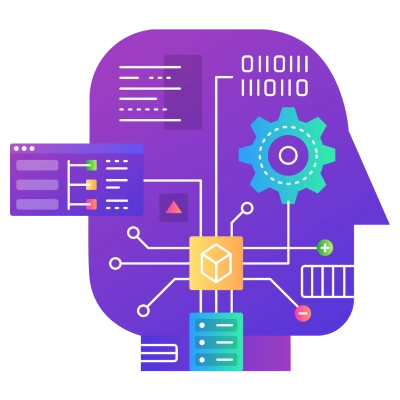
AI also plays a role in prediction markets by analyzing trends, flagging unusual trading activity, and filtering out bots or suspicious market manipulation. The result is a faster, smarter marketplace where odds evolve as quickly as new information does.
Blockchain: The Trust Machine
Prediction markets have found a natural home on blockchain technology. Smart contracts automatically handle bets, payouts, and verifications without middlemen. Every trade is recorded on a public ledger, giving bettors total transparency and minimizing disputes.
This decentralization removes the need to “trust” a platform — you can see everything happening on-chain. Platforms like Polymarket popularized this model by making it easy for anyone to trade predictions using stablecoins and decentralized wallets.
How Technology Is Shaping the Future of Betting
Here’s how AI and blockchain are transforming the landscape:
- Faster odds movement: Algorithms instantly react to live data, injuries, and betting volume.
- Dynamic in-play betting: Bettors can wager on outcomes that change by the second — pitch-by-pitch, play-by-play, or moment-by-moment.
- Transparent settlement: Blockchain ensures every result, transaction, and payout is publicly verifiable.
- Fairer pricing: Markets that use AI and blockchain together reduce manipulation and improve accuracy.
- Hybrid platforms: Some startups are combining both models — the liquidity and regulation of sportsbooks with the open, decentralized pricing of prediction markets.
Technology is erasing the line between “bookmaker” and “market.” AI brings precision; blockchain brings trust. Together, they’re creating a new betting era where odds are smarter, markets are faster, and bettors have more control than ever before.
The question isn’t if sportsbooks and prediction markets will merge — it’s how soon.
The Future: When Everyone Bets on Everything
We’re entering a world where betting is no longer confined to sports or casinos — it’s woven into culture itself. From predicting presidential elections to guessing the next viral TikTok trend, the future of gambling might look a lot more like participation than speculation.
Technology, decentralization, and consumer demand are turning every major event into a potential market. Whether it’s who wins the next Grammy, when the next iPhone launches, or how the stock market reacts to an earnings report — people are already finding ways to put money behind their predictions.

What’s Driving This Shift
Several powerful trends are pushing the “bet-on-anything” movement forward:
- Tokenized markets: Digital tokens let anyone trade on outcomes in seconds, creating near-limitless liquidity.
- Micro-betting culture: Bettors crave instant action — not just who wins the game, but who scores the next basket or how long the next drive lasts.
- AI-powered forecasting: Artificial intelligence is making it easier to build and price markets on virtually any topic, including real-time pop culture events.
- Mainstream curiosity: As people become more data-savvy, they want to participate in the same prediction engines that hedge funds and sportsbooks use.
- Gamified investing: The line between trading and betting continues to blur as “prediction trading” becomes a new form of entertainment.
How Sportsbooks and Prediction Markets Could Converge
The next generation of platforms may combine both systems — the trust and liquidity of sportsbooks with the innovation and transparency of prediction markets.
Here’s what that could look like:
- Crowd-driven odds inside regulated sportsbook apps.
- Custom prediction pools where users create their own markets.
- On-chain settlements that verify results instantly.
- Cross-market data feeds that help both traders and bettors make sharper calls.
The Bigger Picture
If this future plays out, “betting” may no longer feel like gambling at all — it’ll feel like information trading. Markets will act as collective forecasting tools, shaping how people think about sports, finance, and even news events.
That creates massive opportunity — but also responsibility. Regulators will need to catch up. Platforms will need to protect users. And bettors will need to understand that not all markets are created equal.
The future of betting won’t be about luck. It’ll be about data, access, and timing — and the people who understand how to read those signals will be the ones who win most often.
Conclusion: When the Line Between Bettor and Forecaster Disappears
So, who really wins when everyone bets on everything?
At first glance, it might seem like the sportsbooks still hold all the cards — the licenses, the tech, the data, the reach. But look closer, and you’ll see something shifting beneath the surface. The power dynamic is changing. Prediction markets are proving that the crowd can be sharp. AI is making forecasts more accurate. And blockchain is ensuring every wager is traceable and fair.
In this new betting frontier, information is the currency. The bettors who win won’t necessarily be the luckiest — they’ll be the most informed. They’ll know when a sportsbook’s odds are shaded too far, when a prediction market is undervaluing an outcome, and when a surge of crowd activity signals opportunity.
The real future of gambling may not belong to the house or the masses, but to the hybrid bettor — the one who understands both systems and knows how to move between them.
Because when everyone can bet on everything, the edge won’t just belong to those who guess right. It’ll belong to those who understand why the market thinks the way it does — and have the courage to bet against it when the crowd gets it wrong.
The game isn’t ending; it’s just beginning. And in this era of infinite markets, the smartest play might be learning how to see the odds before anyone else does.

Alyssa contributes sportsbook/online casino reviews, but she also stays on top of any industry news, precisely that of the sports betting market. She’s been an avid sports bettor for many years and has experienced success in growing her bankroll by striking when the iron was hot. In particular, she loves betting on football and basketball at the professional and college levels.



